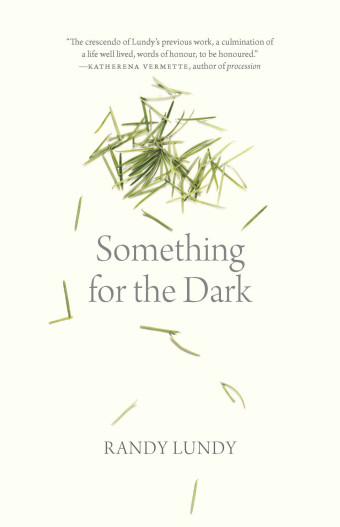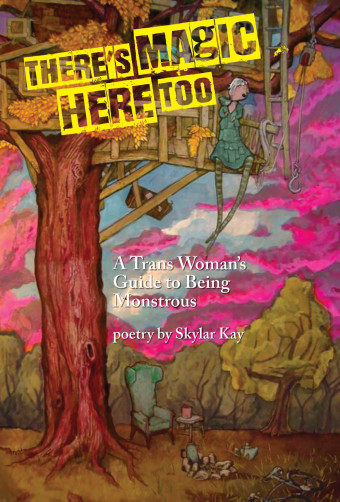The poems in Randy Lundy’s new collection, Something for the Dark, invite readers to be grounded in the body.

- Something for the Dark
- Randy Lundy
- University of Regina Press
- $19.95 Paperback, 96 pages
- ISBN: 978-17-79400-88-8
“I am interested in poems that include the gut and the groin, and feet, preferably bare, upon the ground, and carrying the weight of a body,” says Lundy, who is a member of the Barren Lands First Nation in Saskatchewan and who now teaches at University of Toronto Scarborough.
This philosophy is apparent in the entire collection, which explores failures, heartbreak, and relationship with the land, as the aroma of coffee, the scent of cigarette smoke, and the sight of open Prairie skies appear and reappear throughout.
“We are bodies. We are bodies in the world, surrounded by physical being in all its inestimable forms. It only makes sense for me to begin there, since it is where I live, and everyone else, too,” says Lundy.
“My sense of the world is that there is not a separation between what we casually refer to as matter and spirit. The separation or division is conceptual. In other words, it’s in our minds, but not an accurate representation of the reality.”
Along with everyday sights and smells, a multitude of birds flit in and among the pages – crows, nuthatches, magpies, owls, and more. Lundy says they were inspired by memories of his Irish grandmother – the warmest, most loving presence he’s ever encountered – who kept a bird feeder in her yard for the grosbeaks.
“If you put out the seed, the birds will come,” says Lundy.
“As an adult, I now tend to look for the birds when I sit in a backyard wherever it might be. Their presence comforts me, while their absence portends nothing good. This morning there was the voice of a northern cardinal hidden somewhere among branches and leaves, and a female house sparrow came to my dog’s water dish and perched on the rim to dip and drink.”
These poems often use the second person “you,” which Lundy says speaks to a shared personhood between himself and readers.
_800_746_90.jpg)
“In speaking to ‘myself’ I am still speaking to the reader. There are in many of the poems the accidents of biography, although the reader has no way of knowing with certainty which details are truly biography and which are not, and I am not going to tell. But beyond or even in those, my hope is that there is something there that speaks beyond the personal and inches toward experience that other people can relate to directly.”
The title comes from Philip Levine’s poem, “For Fran” and appears in an epigraph in the book: “Out of whatever we have been / We will make something for the dark.”
This collection reminds us that we can make something out of our mistakes.
“On the one hand, it’s about acknowledging our own failures and shortcomings and perhaps salvaging something from those,” says Lundy. “Human beings make mistakes, and we have to live with them.”
But, he adds, “Darkness can represent possibility, fullness, potential rebirth, and renewal.”













